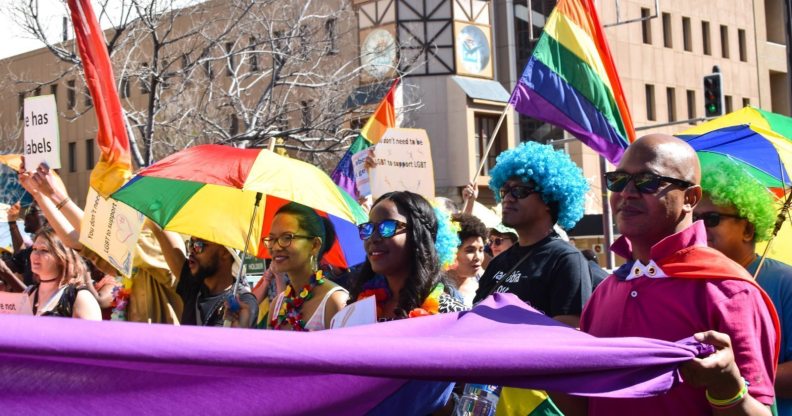One-third of young people aren’t straight, new study shows

(Getty)
Only two-thirds of young British people define themselves as completely straight, a new survey has revealed.
In the BBC study, 14 percent of 16-22-year-olds said they were “mostly” attracted to the ‘opposite sex,’ while nine percent equally attracted to both sexes.
Three percent reported only being attracted to the same sex, with another three percent saying they were mostly attracted to the same sex.

(Getty)
The survey laid out gender as a binary construct based on sex – men and women, and nothing in between – rather than a spectrum.
Just 66 percent of participants identified as strictly heterosexual.
This was a dramatic shift compared to Baby Boomers, 88 percent of whom identified as completely straight.
3,007 people were surveyed by polling company Ipsos Mori, including Baby Boomers (1960-1980), Gen Xers (1961-1981), Millennials (1980s to early ‘90s), and Gen Zers (1990s-mid 2000s).
The younger the participants were, the higher the percentage of those who identified as bisexual, the report showed.

(Getty)
24 percent of respondents from Gen Z reported being mainly attracted to the ‘opposite sex’ or equally attracted to both sexes.
18 percent of millennials and eight percent of Gen-Xers reported this.
Of Baby Boomers, only one percent reported attraction to both men and women.
In the LGBT+ community, bisexual people make up the largest segment.
Despite this, they are the most likely to be closeted.
Many bisexual people have spoken out about falling victim to ‘double stigma’ from both queer and straight peers.
And a multitude of studies contain evidence of bisexual people having higher rates of depression and substance abuse.
This new research follows reports that have shown an increase in people identifying as non-straight, with YouGov conducting a survey two years ago that showed almost half of young people in the UK do not define themselves as 100 percent straight.

(Getty)
A repeat of that survey carried out in the US revealed that one-third of young Americans wouldn’t describe themselves as ‘exclusively heterosexual’.
GLAAD conducted a survey of more than 2,000 people in the US and found that 20 percent of adults under 35 identified as LGBT+.
The survey also found that 12 percent of respondents said they did not identify with their gender assigned at birth, or otherwise don’t conform to gender stereotypes.

